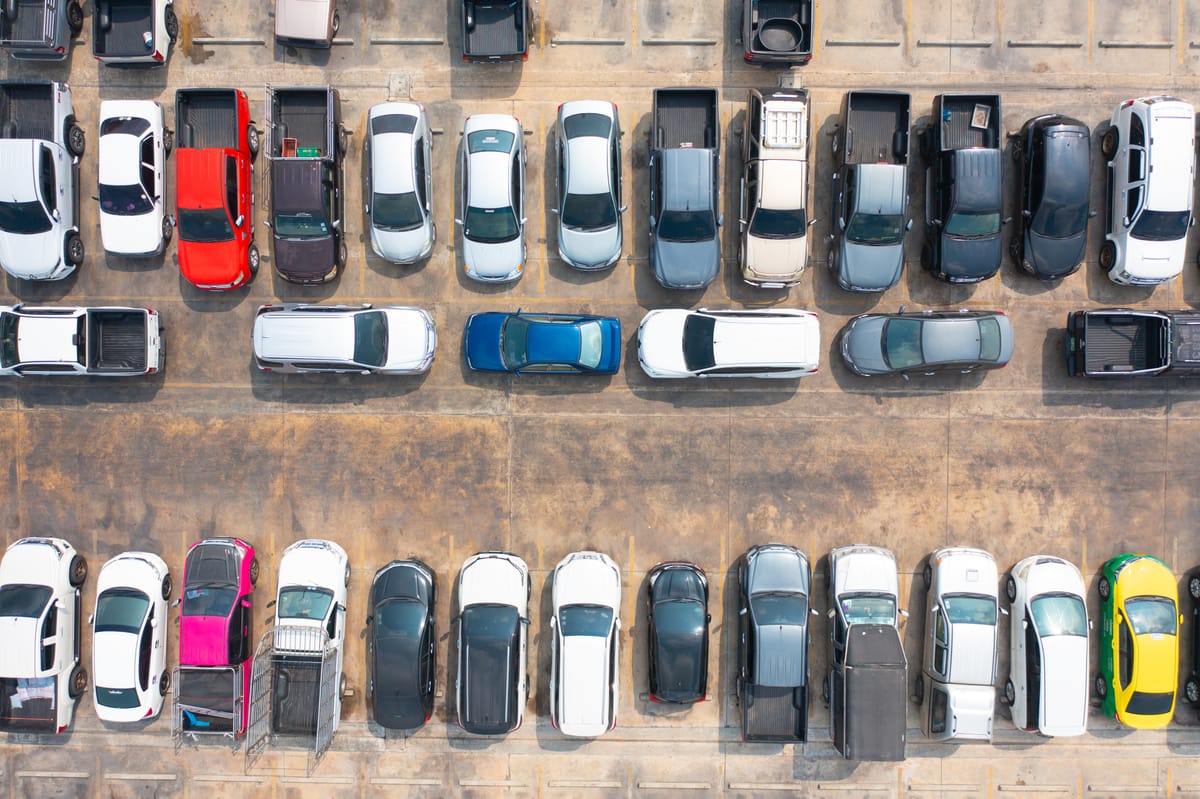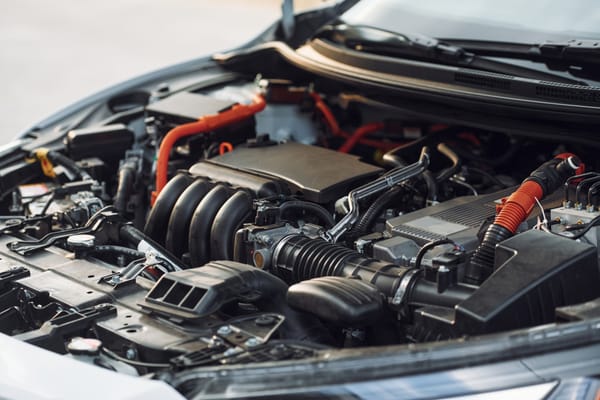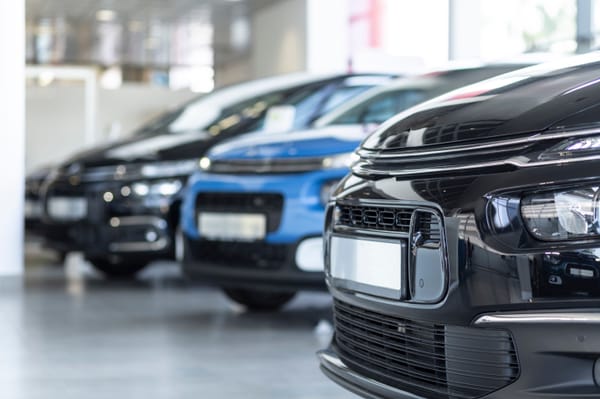What They Don't Tell You About Buying a Locally Used Car vs Importing a Foreign-Used One

Your cousin just imported a Toyota Mark X from Japan. Clean spec, push-start, leather seats, the whole package. He won't stop talking about how he "saved money" by importing directly.
Meanwhile, you're scrolling through Peach Cars, eyeing that 2018 Harrier. Same model year. Similar mileage. But locally available, ready to drive today.
So what do you already know and don’t know about the two processes? Let's break down what your cousin didn’t tell you until you're knee-deep in the process, wallet lighter than you planned.
The Shiny Promise: Why Importing Sounds So Good
When you hear "import straight from Japan," your brain automatically thinks of savings. The logic seems solid at first.
Cars from Japan or the UK often cost less at face value. A quick search will show you that a Toyota Harrier, 2018 model going for around Ksh. 2,000,000 in Japan. That same model locally costs Ksh. 3,000,000.
The difference? A clean 1M. Your mental calculator is already firing.
But here's what happens next.
The Hidden Costs Start Adding Up
That "cheaper" car from Japan comes with baggage. Not the emotional kind, the financial kind that keeps growing like a bad haircut.
- Shipping fees alone will cost you between Ksh100,000 to Ksh500,000, depending on the car size and shipping method. Roll-on/roll-off is cheaper. Container shipping is safer but pricier.
Then come the taxes. Aki, the taxes.
- Import duty is 25% of your CIF value. That's the car's price plus insurance and freight combined.
- Excise duty? Another 20-25% depending on engine size.
- VAT? 16% on top of everything already calculated.
You're not done yet. Add:
- Port handling charges
- Railway development levy
- Import declaration fees
- Clearing agent costs
- Verification fees
- Interpol checks
- Radiation checks
- …and NTSA stickers.
Suddenly that Ksh. 1M difference is looking shakier than Thika Road during rush hour. Read this blog piece on the cost analysis benefits of buying locally vs. importing a used car to understand more.
What You See vs What You Actually Get
The Spec Sheet Illusion
Foreign-used cars often come with higher specs. Push-start ignition, sunroof, heated seats, and better sound systems. These features are standard overseas but rare locally.
Sounds great, right? Until you realise those heated seats are designed for Hokkaido winters. Sure, they might come in handy during cold mornings, but still…
- Also, that fancy multimedia system? Good luck finding replacement parts on Kirinyaga Road.
- That navigation system? It's in Japanese. Good luck understanding directions when kanji characters are telling you where to turn. You'll still end up using Google Maps on your phone.
- The TV tuner? Works for Japanese broadcast standards. In Kenya, it's just extra buttons that do nothing. Wasted technology sitting in your dashboard, looking pretty but not helping.
- Premium sound system with voltage requirements for Japanese outlets? Enjoy that with adapters and converters that complicate everything. Or just don't use half the features.
The Age Game
Kenya has an 8-year import rule. You can only bring in vehicles manufactured within the last eight years. This keeps the market relatively young.
But here's the catch.
- A 2017 model imported in 2025 has spent all those years on foreign roads. It might look pristine, but it may have undisclosed histories.
- Locally available cars? Already adapted to potholes, dust, and the unique chaos of Kenyan roads. They've survived here. That matters. Plus, you can test-drive, feel the suspension, check for every fault and ask questions and get a real-time feedback.
- With local purchases, especially through Peach Cars' 288-point inspection, you see exactly what you're getting. No surprises. No "boss, we'll fix that small issue" stories.
Time: The Cost Nobody Calculates
Your cousin with that imported Mark X? He waited 41 days on average from payment to actually driving his car.
Let's break down that timeline:
- Shipping from Japan to Mombasa: 25-30 days
- Port clearance and customs: 7-14 days
- Transportation to Nairobi: Another few days
- Final registration and paperwork: Variable, but rarely fast
That's over a month of waiting. No car. Just anticipation and prayers that nothing goes wrong.
Compare that to buying locally.
- You test-drive in the morning.
- Complete paperwork in the afternoon.
- Drive home the same day. No waiting. No shipping anxiety. No customs drama.
Time is money, especially when you're relying on boda bodas and Ubers while your "savings" float somewhere in the Indian Ocean.
Parts and Service: The Long-Term View
That rare model you imported? Parts will be a nightmare. Most mechanics in Kenya are familiar with common models. Toyota Premio, Nissan Note, Mazda Demio, Subaru Impreza.
Uncommon imports mean:
- Longer waits for spare parts
- Higher costs when you find them
- Fewer mechanics willing to touch them
- More trips to specialised garages
Kenya's used-car market is projected to grow from USD 1.72 billion in 2025 to USD 2.44 billion by 2034. This growth is driven by popular, serviceable models. Not rare imports.
The Convenience Factor: Peace of Mind Has Value
With Imports:
You coordinate across time zones. Deal with foreign sellers you'll never meet. Hope the inspection report is honest. Wait weeks for shipping. Navigate complex customs procedures. Hire clearing agents. Transport from Mombasa. Register with NTSA. Then finally, finally, drive.
If anything goes wrong? Good luck getting recourse from an overseas seller who already has your money.
With Local Purchases:
Especially through Peach Cars, the process is straightforward:
- Browse available inventory online
- Schedule a viewing and test drive
- Get transparent pricing with no hidden fees
- Access flexible financing options through reputable partner institutions
- Complete ownership transfer efficiently
- Drive home the same day
- Get after-sales support when needed
- You get trade-in options
- Transparent vehicle history
No shipping anxiety. No customs shenanigans. No hidden costs materialising like bad exes. Just a straightforward purchase with someone you can call if issues arise.
That peace of mind? Priceless.
Making the Smart Choice
So, what should you do?
Ask Yourself These Questions
Can you afford to wait 40+ days? If you need a car urgently, importing isn't viable. Public transport and rentals during that waiting period cost money too.
- Do you have full capital upfront? Imports require complete payment before shipping. Local purchases offer financing. Which suits your financial situation better?
- How important is test-driving? Can you commit millions without physically experiencing the vehicle? Some people can. Most can't.
- What's your risk tolerance? Comfortable with uncertainty and potential complications? Or do you prefer predictable, transparent processes?
- Do you need after-sales support? Local dealers provide ongoing assistance. Import sellers disappear once paid. Which model gives you more confidence?
The Verdict: What Makes Sense for Most Buyers
For the vast majority of Kenyan car buyers, buying locally is smarter. The math clearly favours it. The convenience overwhelmingly supports it. The peace of mind justifies it.
Importing works for a small percentage of buyers with specific needs, deep pockets, and patience. If that's you, go for it. But understand what you're getting into. Eyes wide open.
For everyone else? Save your money, time, and sanity. Buy locally. Peach It!
At Peach Cars, we've simplified the entire process.
- No hidden costs.
- No shipping drama.
- No customs nightmares.
- Just quality vehicles, transparent pricing, and genuine support.
Browse our inventory online. Find something you like. Schedule a viewing. Test-drive it for real. Complete the paperwork. Drive home the same day.
That's how car buying should work. Clean. Insured. Inspected. Ready.
Call us on 0709 726 900 or visit Peach Cars today. Let's find your perfect ride without the import headaches.
Because life is too short to spend it tracking shipping containers and decoding KRA forms. You've got places to be. Let's get you there.




